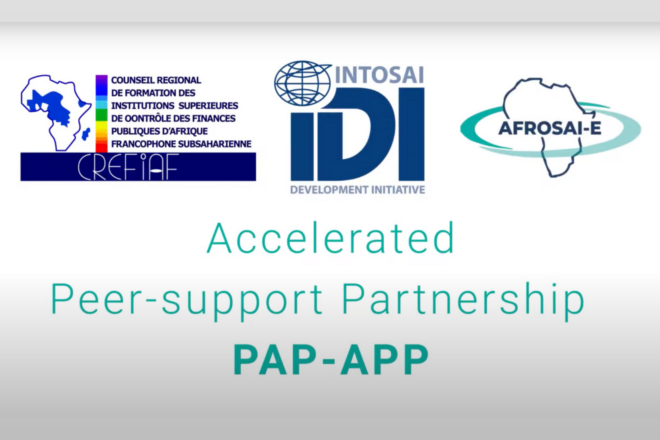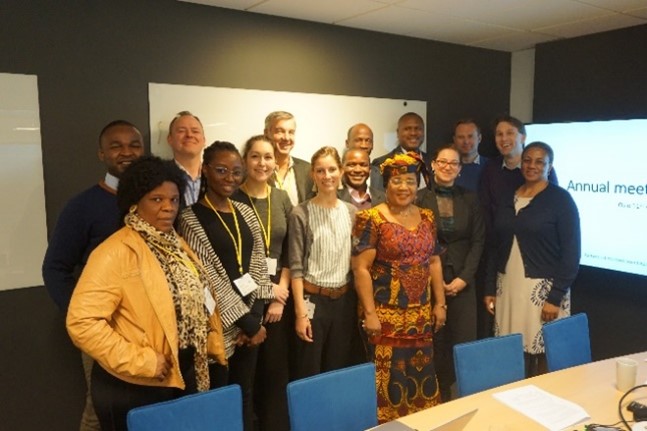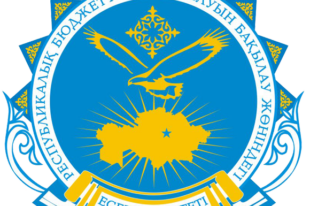PAP-APP 2018-2024: A game-changer designed to increase the impact of Supreme Audit Institutions

Author: INTOSAI Development Initiative
Supreme Audit Institutions (SAIs) aim to make a difference in the lives of citizens. For SAIs operating in challenging contexts, reaching this lofty aim is not always obvious. In 2018 the INTOSAI Development Initiative (IDI), African Organisation of English-speaking Supreme Audit Institutions (AFROSAI-E), and African Organisation of French-speaking Supreme Audit Institutions (CREFIAF), came up with a groundbreaking model to support SAIs operating in challenging contexts.

This innovative programme was conceived under the Global Call for Proposals (GCP) Tier 2 to address the specific needs of SAIs in challenging environments. The programme has made remarkable progress overcoming many challenges and offering valuable lessons for future capacity-building interventions.
A novel approach
A key feature of the “Partenariat d’Appui Accéléré par les Pairs”/Accelerated Peer Support Programme (PAP-APP) is its use of peer support and partnerships. Unlike traditional capacity-building models, PAP-APP leverages the expertise of SAIs at a higher level of organisational effectiveness and regional bodies to provide tailored support to SAIs at a lower level of organisational effectiveness.
By fostering collaboration and mutual learning, the programme is an embodiment of the INTOSAI motto, “Mutual experience benefits all.” This novel approach enabled eleven SAIs in countries like the Democratic Republic of Congo, Eritrea, Guinea, Madagascar, Niger, South Sudan, Sierra Leone, Somalia, The Gambia, Togo, and Zimbabwe to implement strategic plans, strengthen operational planning, monitoring, and reporting, and deliver impactful audits through various types of support.
At its inception, the PAP-APP programme’s ambitious goals raised questions about its feasibility. Tasked with addressing deep-rooted challenges in challenging contexts, the initiative’s success depended on several critical factors such as: sustained donor support, effective peer partnerships, and the ability to adapt to diverse local contexts. While these challenges were significant, the programme’s design—emphasising collaboration, flexibility, and strategic focus—provided a solid foundation for its eventual success. Over the years, PAP-APP showed that with the right mix of resources and commitment, meaningful progress in enhancing SAI capacities is achievable, even in the most challenging contexts.
Building strong capacities
A cornerstone of PAP-APP has been its emphasis on capacity-building for both SAIs and providers of support. Over 290 providers of support to SAIs and SAI staff took part in programme capacity-building initiatives in 2024 alone. Tools such as the competency matrix and hybrid training models have been instrumental in equipping SAI staff and peers with the skills needed for complex audits and governance challenges.
Positive results from external evaluations
An independent evaluation of the programme in 2024 by Ernst & Young- Sweden lauded the programme’s design and outcomes. Their report highlighted PAP-APP’s role in enhancing peer-to-peer support, developing strategic management tools, and aligning with Sustainable Development Goals (SDGs). Key achievements include increased peer engagement (15 stronger SAIs offering support to the 11 PAP-APP SAIs by 2024) and significant improvements in strategic change management and audit quality.
Impact across country projects
PAP-APP’s reach extends to diverse contexts, with country-specific projects delivering tangible benefits. Below are a few of the achievements:
- Madagascar received dedicated funding from USAID. The project is providing support to the SAI relating to jurisdictional controls; strengthening the legal framework; improving communication; strategic management; internal governance as well as in providing digital tools and software and in promoting gender equality and diversity.
- South Sudan received funding from the Norwegian Embassy in Nairobi. The National Audit Chamber Strategic Change Project strengthened financial, compliance, and performance audit capabilities to enable completion of backlogged audits.
- Eritrea, with funding from the African Development Bank, experienced improved strategic planning, received resident trainer support on Financial Audit, Performance Audit, Information Systems Audit and Quality Assurance and gender inclusivity to foster long-term capacity development.
- In The Gambia, Peer partnerships helped enhance audit methodologies and operational planning leading to timely and impactful audits such as the 2020 consolidated audit of government accounts.
- In Zimbabwe, the programme led to strategic reviews and the development of operational plans, improving governance and accountability practices. The Swedish National Audit Office also provided technical support in collaboration with PAP-APP.
- In Sierra Leone, the programme led to strengthening strategic management. This included management reviews and the development of the strategy, operational planning & monitoring process and reporting.
- In Guinea and Togo, small-scale projects focused on gender-based audits and strategic management to deliver actionable insights and strengthened planning processes. In addition, Guinea has received support for the audit of public accountants’ activities in relation to budgetary discipline.
- In Somalia, extensive support enhanced reporting processes for financial and compliance audits alongside professional development initiatives for SAI staff.
- In the Democratic Republic of Congo, a project funded by NORAD led to ICT enhancements, communications strategies, and increased audit capacities.
- In Niger, despite interruptions to the support since the military takeover in July 2023, the SAI received support for strategic management, stakeholder engagement, and gender diversity and inclusiveness audits.
Challenges
Despite its successes, PAP-APP encountered many challenges including local context adaptation. Differences in political, cultural, and institutional contexts required continuous customisation of support. Amongst other interventions, training on Problem-Driven Iterative Adaptation (PDIA) and long-term peer engagement proved vital in addressing these challenges.
Also, many of the SAIs continue to face infrastructure deficits and resource constraints highlighting the need for additional donor engagement to address long-term needs.
Lessons for future programmes
PAP-APP’s experience offers valuable insights for similar initiatives. As the programme ends, some key lessons learned include:
- Flexibility in design: Tailoring support to specific SAI needs and maintaining open communication channels fosters trust and relevance.
- Effectiveness of peer-to-peer support. Peer to Peer support is an effective way of addressing the capacity development needs of SAIs. However, it needs good management, funding and coordination to succeed.
- Institutionalising best practices: Strategic planning, monitoring, and reporting processes are foundational for an effective SAI. Embedding these processes requires sustained guidance.
- Effective donor engagement: Building credible partnerships and aligning funding strategies are critical for long-term sustainability. Also, continuous donor engagement and coordination are useful for raising the profile of SAIs and avoiding duplication of support to SAIs.
As PAP-APP ended in 2024, we express our gratitude to all the stakeholders, especially the Peer providers and the financial donors. The programme’s legacy underscores the transformative power of peer-to-peer collaboration and the importance of adaptive strategies in capacity development. By continuing to innovate and share lessons, PAP-APP and its partners are setting a robust foundation for the future of SAIs globally.
For more information on PAP-APP, visit: Accelerated Peer-support Partnership (PAP-APP)





